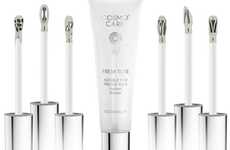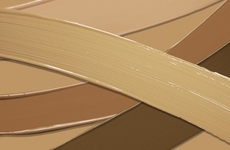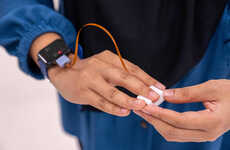
L'Oreal is Testing Cosmetics on 3D-Printed Skin Tissue
Rahul Kalvapalle — May 19, 2015 — Tech
References: ir.organovo & gizmag
L'Oreal is all set to begin testing its cosmetics on artificial 3D-printed skin. The skin's development is a result of a collaboration between the cosmetics giant and bioprinting company Organovo. The artificial skin tissue is reconstructed layer by layer using real human cells.
130,000 3D-printed skin tissue samples are produced each year at a research center in France, and are used to study the toxic effects -- allergies, corrosion, irritations and so on -- of untried cosmetic ingredients
The cosmetics industry has been responsible for the pain and suffering of countless animals forced to be used as testing pawns; L'Oreal must be commended for taking the lead in eschewing animal testing by investing in this 3D-printed skin tissue.
130,000 3D-printed skin tissue samples are produced each year at a research center in France, and are used to study the toxic effects -- allergies, corrosion, irritations and so on -- of untried cosmetic ingredients
The cosmetics industry has been responsible for the pain and suffering of countless animals forced to be used as testing pawns; L'Oreal must be commended for taking the lead in eschewing animal testing by investing in this 3D-printed skin tissue.
Trend Themes
1. Artificial Skin Testing - The use of 3D-printed skin tissue for cosmetic testing presents an opportunity for the development of cruelty-free alternatives.
2. Bioprinting - The collaboration between L'Oreal and Organovo in developing artificial skin tissue showcases the potential for advancements in bioprinting technology.
3. Cruelty-free Cosmetics - The adoption of 3D-printed skin tissue testing by L'Oreal signals a growing trend towards cruelty-free cosmetics in the industry.
Industry Implications
1. Cosmetics - The cosmetics industry has an opportunity to leverage the use of artificial skin tissue for testing, allowing for ethical and cruelty-free product development.
2. Biotechnology - The advancements in bioprinting technology for creating artificial skin tissue open up possibilities for disruptive innovation in the biotechnology industry.
3. Animal Testing Alternatives - The development of 3D-printed skin tissue as an alternative to animal testing creates new opportunities in the field of animal testing alternatives.
3.4
Score
Popularity
Activity
Freshness























